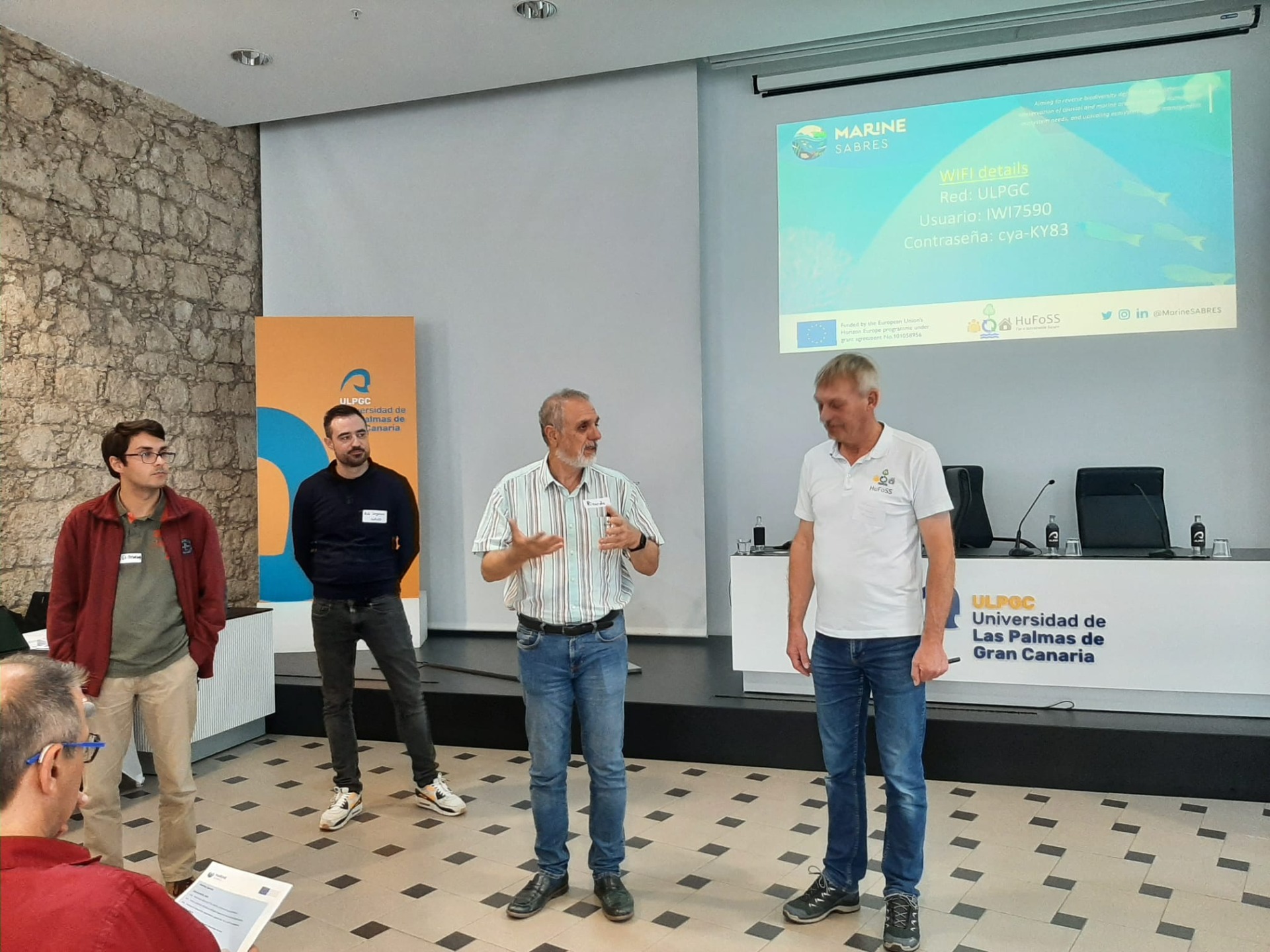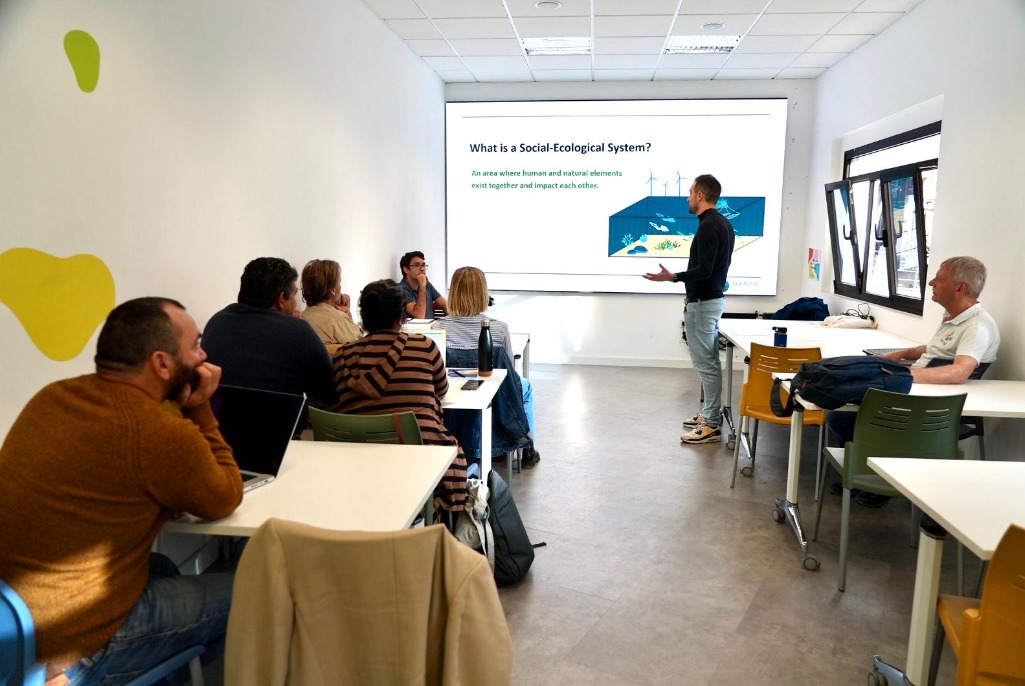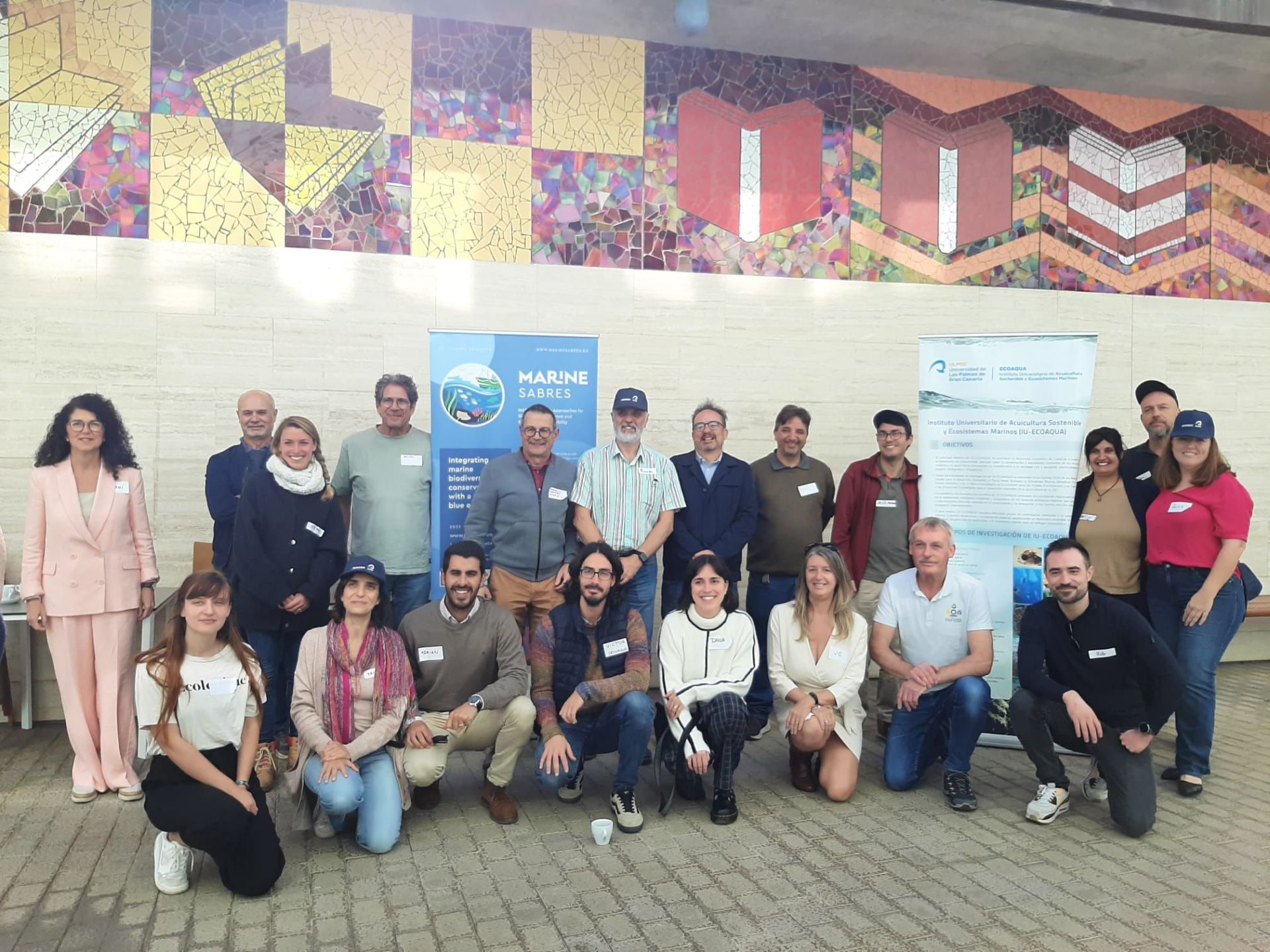The event, which was attended by the principal researcher of the project and director of the institute, Ricardo Haroun, as well as several researchers from the BIOCON group, took place in Fuerteventura and Gran Canaria on 13 and 15 January, respectively, with the participation of more than 30 representatives from various sectors of society
The ECOAQUA Institute of the University of Las Palmas de Gran Canaria (ULPGC), with the support and management of the Canarian Science and Technology Park Foundation (FPCT), as well as with the collaboration of the Department of Tourism, Blue Economy and Biosphere Reserve of the Fuerteventura Island Council, has concluded the second round of consultations of the European project Marine SABRES, which has had the participation of more than 30 local stakeholders belonging to sectors of society linked to the conservation, management and development of activities in the marine environment.
These workshops, held on 13 January at the Island Youth Centre of the Fuerteventura Island Council, and on 15 January at the room ‘Aula de Piedra’ (Stone Room) of the institutional headquarters of the ULPGC, in the case of Gran Canaria, were developed in alignment with the objectives of Marine SABRES to reverse the loss of biodiversity, strengthen the conservation of coastal and marine areas and balance human and ecosystem needs.
These events give continuity to the iterative process that is being carried out with key actors identified in the different demonstration areas of the project: Macaronesia, Tuscan Archipelago and North-Eastern Arctic.
 The director of ECOAQUA, Ricardo Haroun, together with members of HuFoSS and BIOCON researcher Jesús Padrón (on the left side of the picture), during the inauguration of the event in Gran Canaria.
The director of ECOAQUA, Ricardo Haroun, together with members of HuFoSS and BIOCON researcher Jesús Padrón (on the left side of the picture), during the inauguration of the event in Gran Canaria.
The first round of consultations took place in Gran Canaria in July 2023 and was well attended. For the workshops linked to the second round, local stakeholders, mainly present on the islands of Gran Canaria and Fuerteventura, were invited.
The meetings were attended by the director of ECOAQUA, Ricardo Haroun, and researchers from the Biodiversity and Conservation Group (BIOCON) Inma Herrera, Jesús Padrón and Candelaria Cecilia.
In addition, among the profiles present at the workshops were representatives of the Administrations, such as the Councillor for the Environment, Climate, Energy and Knowledge of the Island Council of Gran Canaria, Raúl García Brink, the artisanal fishing sector, associations with activities linked to the coastal and marine environment, conservation NGOs, marine tourism companies and research centres, among others.
Participatory and dynamic process
The workshops, whose main objective was to facilitate the identification of priorities from different perspectives, areas of knowledge and experiences, took place in an interactive, participatory and dynamic manner, beginning with a presentation of the project and its objectives, as well as the progress achieved so far.
 Explanation of the Marine SABRES project, during the event held in Fuerteventura.
Explanation of the Marine SABRES project, during the event held in Fuerteventura.
The participants were also consulted on specific management strategies, conservation measures and decision-making tools, highlighting the importance of ecological connectivity between the archipelagos of the Canary Islands, Madeira and the Azores for the protection of marine species and their migratory routes. This also promoted dialogue in the search for solutions to problems that have an impact on both social welfare and the marine environment.
The HuFoSS Foundation, a partner organisation that leads the participatory processes and interaction with local Marine SABRES agents, is in charge of coordinating and organising this event within the framework of the project. This entity highlights the relevance of participatory digital tools to integrate the vision of local communities in European sustainability policies, which will facilitate informed decision-making, promoting a harmonious relationship between economic development and environmental conservation.
 Group picture with the participants of the second round of consultations of the European project Marine SABRES held in the room 'Aula de Piedra' of the ULPGC.
Group picture with the participants of the second round of consultations of the European project Marine SABRES held in the room 'Aula de Piedra' of the ULPGC.
Marine SABRES is a project funded through the Horizon Europe Programme whose main objective is to balance marine conservation with sustainable socio-economic activities through the generation of decision support tools.
In addition to ECOAQUA, the project has the following partners from different European countries: MARE (Centre for Marine and Environmental Sciences) of the University of Lisbon (Portugal); MAREI of the University College Cork, Ireland; ARDITI (Regional Agency for the Development of Research, Technology and Innovation), Madeira (Portugal); the Department of Innovation Engineering of the University of Salento (Italy); the University of Pisa (Italy); DTU (Technical University of Denmark, Denmark), AQUARIUS-RI of the European Union; Blue Resource / Sjókovin of the Faroe Islands; Research Institute for Sustainability (RIFS), Potsdam (Germany); and Hafrannsóknastofnun (Marine & Freshwater Research Institute), Iceland.


